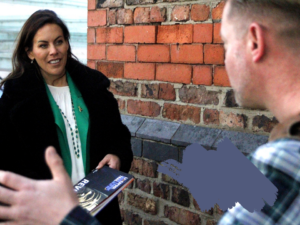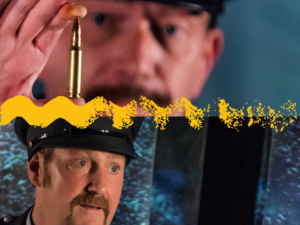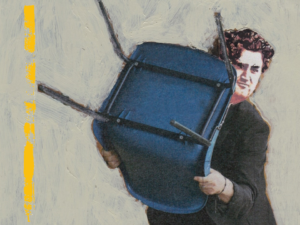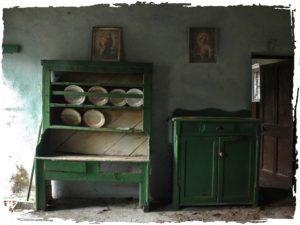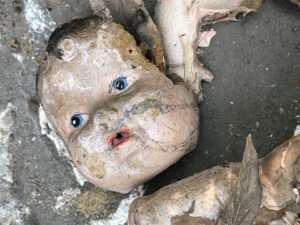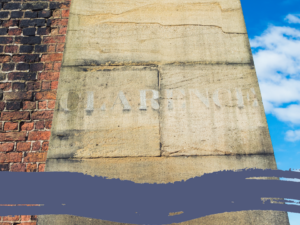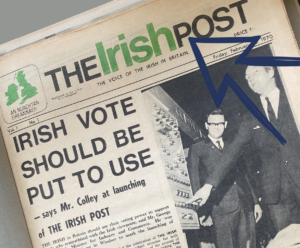
Changing the Irish Archival Landscape in Britain
Article contents
- Socialising the archive: the Mac Lua Archive and Irish diaspora in Britain
- Conflict, identity and cultural change in the post-war Irish diaspora
- Exhibiting The Irish Post
Housed within Special Collections at the University of Liverpool, the Mac Lua Archive is a unique collection of historical documents. Relaying the social, cultural and political history of modern Ireland, the archive forms one of only two dedicated Irish Studies archives, found in England, Scotland or Wales. Its re-examination is led by the Institute of Irish Studies, to develop and promote the archive as a repository for Irish heritage in Britain.
25-years of private archive donations have built the archive, which comprises of a wealth of rare and unseen source materials. The collection is of seminal importance to ongoing academic and public debates centered on recent British-Irish relations and shared history. Its contents additionally reflect Liverpool’s cultural heritage and the wider Irish community in Britain. This short article introduces the project.
Socialising the archive: the Mac Lua Archive and Irish diaspora in Britain
Irish people form the largest migrant and ethnic group in modern British history. Nevertheless, their experiences -and the history of the Irish Diaspora in Britain- remain under-represented within contemporary Britain’s archival landscape.
In Summer 2021, Liverpool’s Special Collections and Institute of Irish Studies teams secured funding from the National Archives Archives Revealed scheme. The scheme required the teams to develop the Mac Lua Archive in to a contribution towards redressing this deficit. As well as enabling the collection to be rehoused within Special Collections -and fully catalogued for public use- resources were given to ‘enhance civic potential’ and improve public visibility of the archive. Doing so, would identify it as an important repository of Irish community memory in Britain.
What’s in the collection?
Whilst the collection contains a diverse selection of historical sources, and artefacts relating to Irish history, a particular strength lies in its materials relating to the experiences of the Irish Diaspora. Comprising…
- a complete forty-year series of the Irish community newspaper the Irish Post
- some 500 emigrant letters dated between 1920-1950
- plus, numerous pamphlets, reports and minute-books documenting the development of Irish community organisations…
the archive’s accumulated holdings constitute an unparalleled record. This complex combination of artefacts reflects the experiences, self-perceptions and community-building activities of Britain’s largest post-war migrant ethnic minority group.
Consequently, the collection is a major resource for the academic study of the recent history of race, ethnicity and migration. It also underscores the Mac Lua Archive’s potential, as a resource, for new public histories that engage broad audiences in reflecting on the Irish diaspora’s significance in the making of modern Britain.
Conflict, identity and cultural change in the post-war Irish diaspora
Exhibiting the Irish Post
The University of Liverpool holds a mission to promote public awareness of shared cultures and histories in the North West region. In concert with the mission, scholars at the Institute of Irish Studies are devising plans to encourage engagement with the collection. In addition to digitising the artefacts, expanding public access to key components of the archive is critical. This includes plans for a series of public events, staged around the city over the next three years. Conceived to encourage local, non-academic audiences to interact with themed collections within the archive, these events will take a variety of formats. Typically, they’ll involve transposing materials from the collection, into public settings. The work will be used to engage individuals and groups in reflection and critical dialogue, centered on important aspects of the Irish settlement experience in Britain.
Mobility and access
A core tenet of the project is the development of a mobile exhibition. This will use the Irish Post to foster reflection on aspects of Irish community history in Britain, especially late twentieth century events. Established in 1970, the Irish Postwas the primary community newspaper for c.1 million Irish migrants. Through its extensive coverage of The Troubles in Britain, it played a central role in reflecting and shaping reader’s perceptions of the everyday impacts of the conflict in English cities. Focusing on the controversial impacts of the Provisional Irish Republican bombing campaign in England, including the Prevention of Terrorism Acts, this project will digitise key editorials, features articles, images and letter pages. These will be used in a new exhibition and public discussion events, encouraging local audiences to reflect upon the legacies of these events.
More generally, the exhibition explores wider aspects of change in Irish identities in Britain, covering an era of profound social and cultural transformation in English society. In addition to its coverage of the Troubles, the Irish Postconstitutes an unparalleled resource for documenting long-run changes in the demography, social status and cultural values of the Irish community. Focusing on changing attitudes towards religion, consumption, work, and gender identities Exhibiting the Irish Post (the working exhibition title) situates the development of the post-war Irish diaspora within patterns of social change. In doing so, it encourages audiences to reflect on how the everyday meanings of ‘Irishness in Britain’ have evolved.
Partnership
Developed in partnership with Liverpool Irish Centre, the Irish Post, the Irish Consulate in Britain and Liverpool Irish Festival, it’s hoped the project meets a civic need for more inclusive public histories of Britain’s recent past. The archive provides an apt opportunity to reflect on the significance of post-war Irish settlement in Britain. It’s a collection of importance for both people of Irish heritage and wider audiences in Merseyside and the north west.
The Institute of Irish Studies and Special Collections, University of Liverpool.

